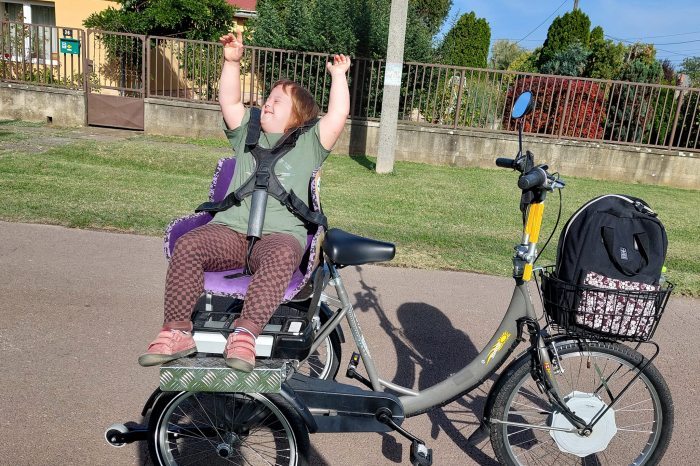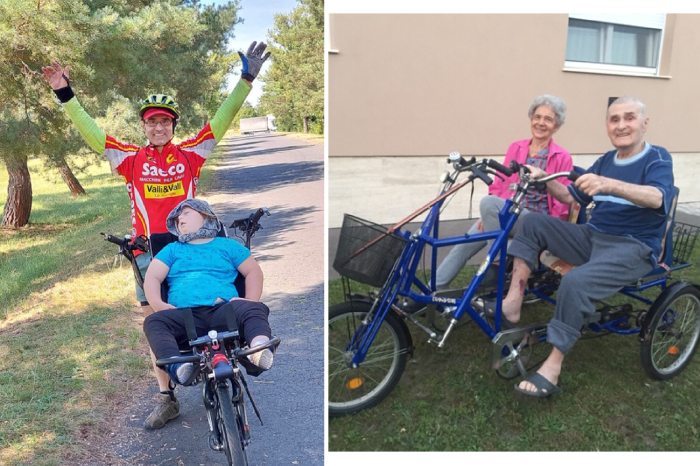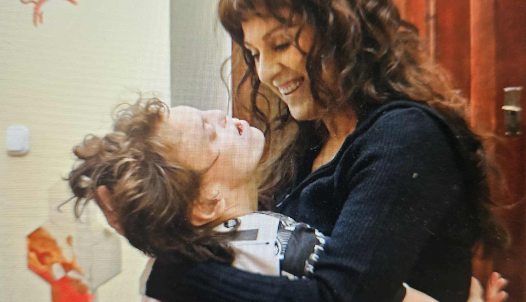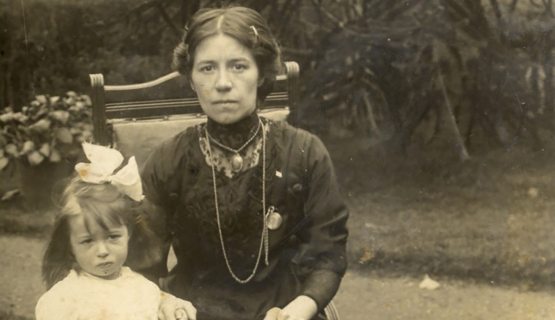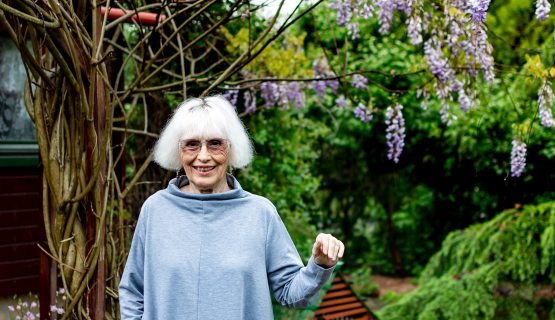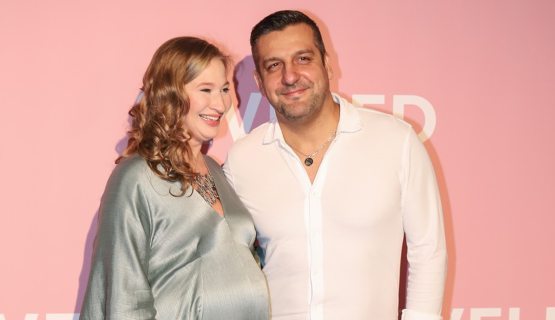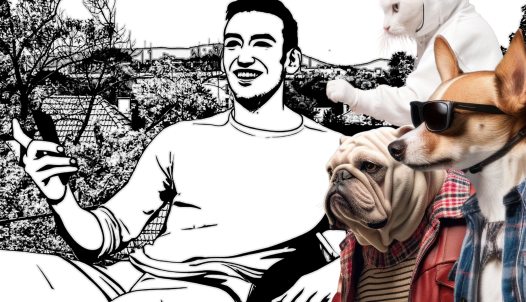Bringanti puts even those on special bikes that others have given up on – "The morning wind touched him again, he saw the birds, the trees, the colours"
He creates bikes for people with special needs – disabled, injured, elderly, or otherwise challenged - who are enthusiastic and know no limits. Thus he provides mobility for people with whom their relatives have never dreamed of going on outings together. Antal Frank, aka Bringanti, is rewarded with many smiles for his creative solutions and for making a living as a craftsman.
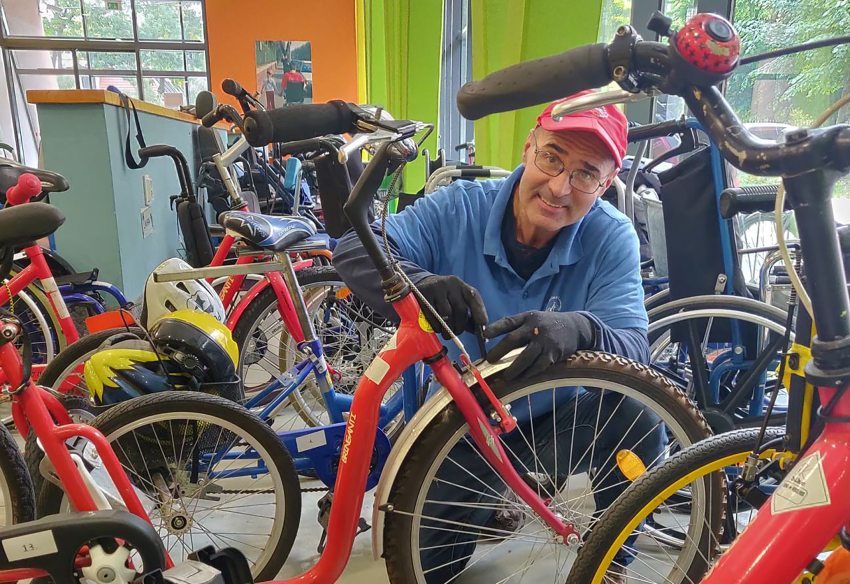
I assume you have a childhood love for bicycles?
Bicycles and love are really intertwined in my life. As a child, I wanted to be a PE teacher, then a welder, and then I basically combined the two: today I help people with disabilities to move, and I weld iron, which is my trade. As for love: when I was courting, I was a relatively good cyclist. And then I tied my first girlfriend1s bike to my bicycle with a piece of string and towed her up the hills of Szada. Then I asked my master, my uncle, to make a tandem for the two of us. That's how the story began.
And how did it continue?
There are no coincidences. As fate would have it, a friend of ours was raising a blind child and told us how nice it would be for them to have a tandem. Word followed word, and then I made one. Then I got a call from the director of the Institute for the Blind, and they ordered three three-seaters. This was in the mid-nineties, but I still fixed them last year – it feels good to see my piece of work still running with its twenty-year-old parts.
Did you decide, or did life decide, to specialize in such special needs?
Life did. For example, one day a disabled man wandered into my shop with a piece of paper in his hand, which I still have to this day – he brought a drawing of a special bike he wanted. He copied it from a foreign newspaper brochure, we made it, and it worked. Since then, he has designed more, and I even refurbished a go-kart for him, one with pedals. It was after many, many years, that he brought it back for a repair this year; I have many returning customers like him.
Few people do this kind of work because it is labour-intensive, but not a big money-maker. You can only do it out of professional challenge and dedication, there is plenty of struggle with it.
How did you gain experience in deciding which type of bike is suitable for which type of injury?
I had the privilege of working in a medical team at the former State Institute for the Disabled, where we worked together with an orthopaedic doctor, physiotherapist and social worker. We worked together to find out which device would be suitable for a particular patient. There was a lot of professional work, as everyone saw different things from the perspective of their own specialty, and finally we managed to get people on the move who even their relatives hadn't thought they would ride a bike. One day, two gentlemen in suits came into my bike shop, which was already operating then, saying they were starting an association. From then on they invited me to two meetings a month with their disabled members, who could try out the equipment on the spot. There were so many kinds of disabilities there – people with no legs, no hands, blind people – that I could figure out their special needs. It was a greater opportunity for professional development than learning the trade from books.
I suppose such devices are not cheap. How can you guarantee that it's worth the customer's investment?
By playing it safe. There are also rental options, precisely so that we can decide what's right based on experience. We'll keep trying until we find one that's worth investing in. And of course, safety is the most important factor, so I take full professional responsibility for my work in that sense too. I've never had a problem. I've had some people for whom I've made a yellow bike - they've asked for it - so that they can be seen in traffic. I listen to all requests, and perhaps my upbringing has given me a kind of social sensitivity towards special people.
Just knowing them will certainly mean a unique and rich experience...
I don't operate on a business basis but on a human basis. I get this amazing attitude from these people that nothing is impossible. I've made a tricycle for an artist who paints with his mouth and feet, which he essentially steered by moving his butt. And he rode it from one end of Budapest to the other. These are miracles. Or someone in the countryside who steers a four-wheeled recumbent bicycle with his trunk, with his sightless wife sitting behind him. They go with a backpack to the next village to buy goat's milk, take it home, make goat's cheese, and sell it.
Some so many intact people constantly whine and complain, whereas these people can do anything out of sheer willpower!
I meet people with tremendous spirit and a positive outlook on life.
I understand that this includes people with autism and Down's syndrome. What's it like to be working with them?
Recently, the parents of a little girl with autism wanted a pushchair bike that they could just push her onto and push. I told them to let her ride it because the most important thing in adolescence is to release energy and have a new experience. We tried, and she rode the bike like a captain riding a horse! You could see she had a lot of stamina. She smiled. And the parents were amazed to find out at the age of 14 what their child was really capable of. And in the summer we went hiking with a little girl with Down's. We were a little worried about whether she could handle six to eight hours on the bike, but she was smiling the whole way, talking to herself and holding her head in joy, shouting "Oh my God!" In her own little world, she was having fun, and feeling safe. She trusted me and my technique, she was happy with the scenery, and she said hi to everyone, of course, not everyone said hi back. I told her to leave it, they're dopey. Her next greeting was "Hi, Dopey!"
From your stories, I also understand that the lives of many people who have been living mainly within the four walls, even for years, could be made more colourful by providing them with the opportunity to get out...
This is what I encourage the relatives with, too. And I can usually find out what can be solved by which tool. And the people involved can learn to ride the bike, just as children learn when they're young. The key is that the bike should be personalized, and for this, it is of course important that I feel the prospective owner's vibes. Children and adults with autism and Down's syndrome are extremely sensitive, they can sense the approach of another person and their movements. I remember on a camping trip, I was washing a cooking pot with a watering can when a little girl with Down's who was considered difficult to handle came up to me curiously. We communicated with glances, posture, and body language, without a single spoken word. I still shudder when I think of it. Finally, she helped, she watered the pot, too, and we felt each other's vibes. That was a miracle too. I don't know if it's a skill that can be learned or if it's a gift.
I understand that you are already making special vehicles for the elderly, thus helping yet another group of people whose difficult living conditions can be alleviated in this way.
My elderly father now needs constant care, and after fifteen years I have bought back a tandem bike for us to sit side by side. I figured, now, here is a machine for my dad, we can ride it together if he wants to, he can pedal, but he can stop if he doesn't. At 7:30 in the evening, I took it over to his house in a trailer, and he staggered out with slippers and a stick: "What's this, son?" "Tomorrow we'll take this to get bread for mum," I said.
And he, who had been living in a darkened room on medication, was there the next morning in sweats and trainers – such was the impact of the sight of the bike!
I even joked about it saying:” What happened? Did mom kick you out?” Then, because he used to love fishing, I took him to a lake tens of kilometers away. Despite his illnesses, he was as happy as can be, he felt the morning wind again, and he could see the birds, the trees, and the colours that you can't see on TV. And his blood circulation and blood pressure changed. So, yes, a special bike can be useful for elderly care, because children are the future, but we also have to take care of our parents. We shouldn't write them off, we should give them opportunities, and we should trust them because what we can give with this to them is a gift to us. That's how I give back everything they gave me.
